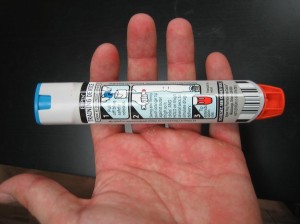Penicillin allergy is a prevalent ailment that arises as an erratic immune response to antibiotics included in the penicillin family. Take note that these drugs can be given intravenously or orally. Generally, both adults and children are affected.
It is important to note that penicillin is a common group of antibiotics that are utilized in the treatment of various bacterial infections. In some instances, it is highly effective and the only dependable option.
The drug is available in liquid, tablet or injectable form. An allergy to penicillin might manifest right away or within 1-2 hours after exposure to the drug.
Risk factors
- Taking the drug in oral or liquid form
- Family history of the allergy
- Babies and young children
What are the potential causes?
Penicillin allergy arises once the immune system perceives some substances in the drug as a threat.
Antibodies are released along with other chemicals including histamine which triggers the allergy symptoms. The amount of drug that instigates an allergy might not be large. Oftentimes, even a small amount of the allergen is enough to start a reaction.
In some instances, a severe reaction or anaphylaxis might manifest which is considered as a medical emergency that necessitates medical attention.
What are the indications?
The signs of penicillin allergy might manifest within a few minutes up to several hours after the drug has been administered. In some cases, the signs are relatively mild while others can be quite severe.

The usual indications of an allergic reaction might include:
- Skin itchiness
- Hives and/or angioedema
- Swollen face, lips and tongue
- Throat tightness
- Hoarseness of voice
- Shortness of breath, wheezing and asthma-like symptoms
- Stuffed or runny nose
- Eye redness, drainage and irritation
- Rapid pulse rate and palpitations
- Low blood pressure
- Diarrhea
- Nausea and vomiting
- Abdominal pain and cramping
- Dizziness and confusion
- Cardiovascular shock
- Fainting and loss of consciousness
Management of penicillin allergy
The management for penicillin allergy generally involves:
- Avoidance of penicillin-based antibiotics and those related to penicillin
- Anti-allergy drugs for minor reactions
- Other drugs might be given to alleviate the symptoms such as decongestants and steroid sprays
- Corticosteroids might be prescribed to reduce the inflammation
- In case anaphylaxis arises, an auto-injector epinephrine must be used right away.
- Breathing support is needed to regulate the asthma symptoms as well as low blood pressure.
- Bronchodilators might also be given for respiratory issues such as wheezing.
Desensitization therapy for penicillin might be suggested so that the individual is accustomed to the drug. This is the ideal approach if there is no suitable treatment for the condition. Remember though that this will not ensure that the body is fully used to the drug.
